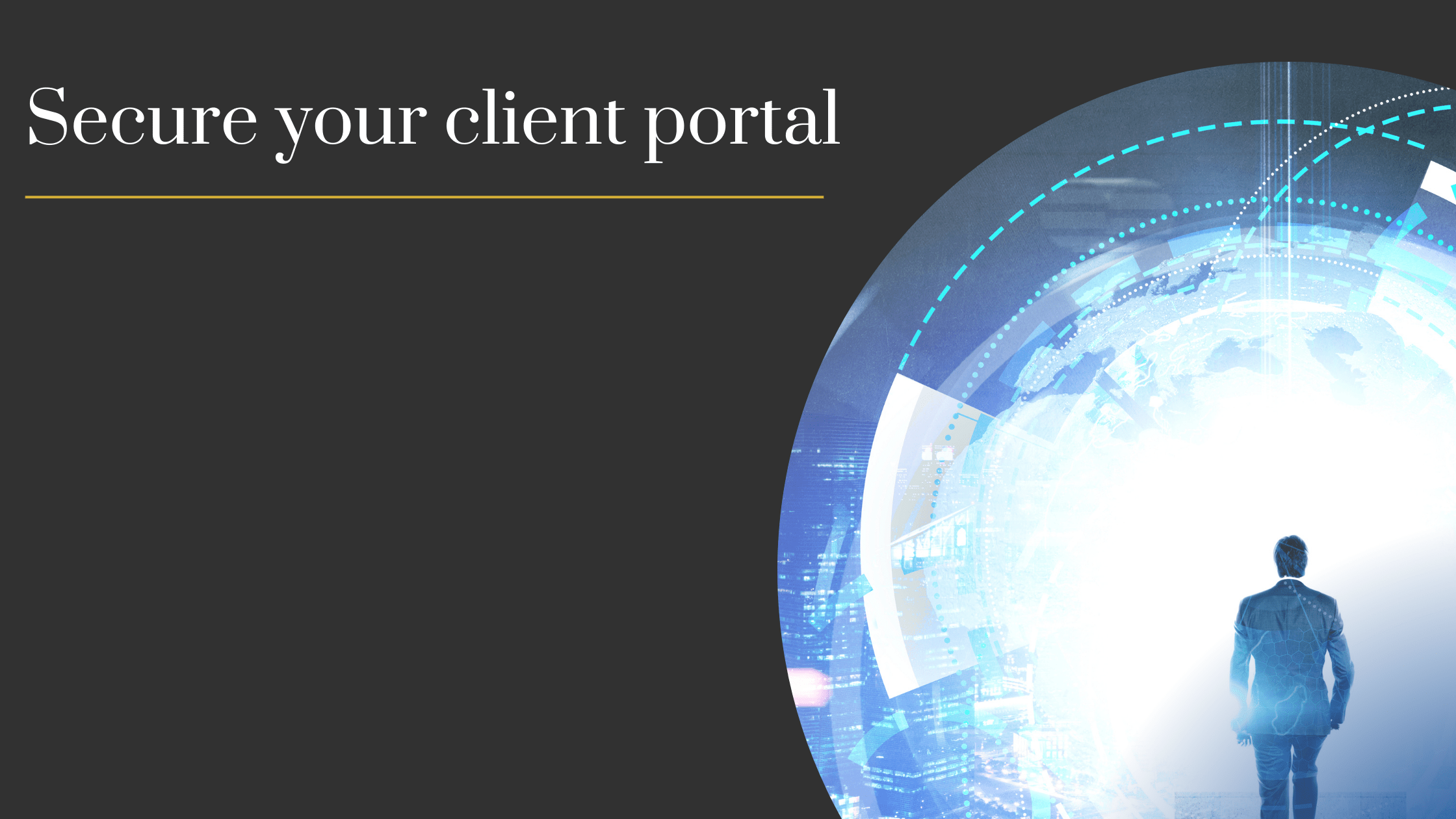A Secure Client Portal Starts With Securing Your Accounting Website
For many accounting firms, having a client portal linked to their main website is a convenient way to offer clients secure access to important documents and communications. However, this convenience comes with potential cybersecurity risks, particularly if your website is not properly secured.
This blog explores why a secure website is directly connected to secure client portal, how attackers might exploit a vulnerable website, and the measures you can take to safeguard your clients’ data.
Table of Contents
- Want to Secure your Client Portal?
- How Securing Your Website Protects Your Portal Link
- Additional Security Measures
- Balancing Security and Convenience
Want to Secure your Client Portal? Start by Securing Your Website
Your website serves as the gateway to many of your firm’s resources, including the client portal. If attackers compromise your website, they could tamper with the portal link, redirecting clients to malicious websites or phishing pages. This is known as link spoofing, and it can expose your clients’ sensitive information—even if the portal itself is secure.
To protect your website, consider these critical security measures:
1. Limit Login Attempts to the Admin Area
Attackers often use brute-force methods to guess admin credentials by trying countless combinations of usernames and passwords. Limiting the number of login attempts before temporarily locking the account significantly reduces this risk.
2. Use Multi-Factor Authentication (MFA)
Multi-factor authentication adds an extra layer of security to your website. Even if an attacker guesses your password, they won’t be able to access your admin area without the second authentication factor, such as a code sent to your phone.
3. Require Strong Passwords
Weak passwords make it easy for attackers to gain access to your website. Enforce a policy requiring long, complex passwords that combine uppercase and lowercase letters, numbers, and special characters.
4. Monitor for Unauthorized Changes
Regularly monitor your website for unusual activity, including unauthorized changes to content or links. Tools like intrusion detection systems (IDS) or website monitoring services can alert you to potential issues.
How Securing Your Website Protects Your Portal Link
Even if your client portal is hosted by a secure, third-party provider, a hacked website could compromise the link to it. Here’s how:
- Link Spoofing:
If attackers gain access to your website, they can change the legitimate portal link to redirect clients to a phishing site. Clients, trusting your website, might unknowingly enter their credentials on the fraudulent page. - Fake Announcements:
Attackers could add fake messages to your website, claiming there’s an issue with the portal and directing users to malicious pages. - Reputation Damage:
Even if the portal itself remains secure, a hacked website erodes trust and makes clients question your firm’s commitment to safeguarding their data.
By securing your website, you create a first line of defense that also protects the integrity of your portal link, ensuring clients are always directed to the legitimate page.
Additional Security Measures: Hiding the Portal From Search Engines
Even if your website and portal are secure, exposing the portal link unnecessarily increases the risk of attacks. Search engines can index the link, making it easy for malicious actors to discover and target it.
To prevent this, take the following steps:
- Use a
nofollowAttribute:
Add anofollowattribute to the portal link in your website’s code. This tells search engines not to index the link. - Block Indexing With
robots.txt:
Update your website’srobots.txtfile to prevent search engines from crawling and indexing the portal link. - Securely Share the Portal Link With Clients:
Encourage clients to bookmark the portal link and access it directly, rather than relying solely on your website.
Balancing Security and Convenience
Linking to your client portal from your website is a great way to enhance client experience, but it requires a proactive approach to cybersecurity. By securing your website with measures like limiting login attempts, multi-factor authentication, and strong passwords, you protect the portal link from being tampered with. Hiding the portal link from search engines further reduces its exposure to potential attackers.
With these safeguards in place, you can provide clients with the convenience of a portal link while maintaining their trust and protecting sensitive data.
Need help securing your accounting website or implementing these measures? Let’s discuss how to keep your clients safe while enhancing their online experience. Click here to get in touch
FAQS
Even if your portal is hosted by a secure third party, a compromised website can allow attackers to tamper with the portal link. This could lead to link spoofing, phishing scams, or fake announcements that erode client trust and put their sensitive data at risk.
Limit login attempts to reduce brute-force attacks, use multi-factor authentication, enforce strong password policies, and regularly monitor your site for unauthorised changes. These steps help keep attackers out and ensure the integrity of your portal link.
Use a “nofollow” attribute on the portal link, block search engine indexing via your robots.txt file, and advise clients to bookmark the link rather than relying on the website each time. These steps reduce visibility and make it harder for malicious users to find and exploit the link.

Leave a Reply